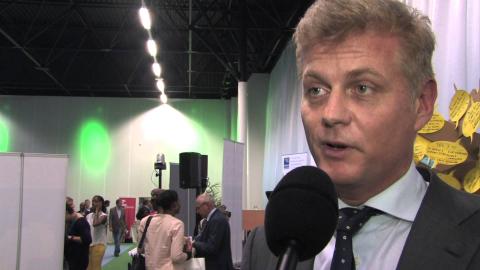
Several issues plague Ghana’s agricultural output including lack of adequate supply of fertilizer, lack of refrigeration equipment after harvests, and general lack public investment in moving the agricultural industry from largely labor intensive to machinery-intensive processes which would raise yields.
Hans Docter, Netherlands ambassador to Ghana, has lamented over the state of investment activity in agriculture in Ghana, warning that Dutch agro-based companies would effectively take over the agrofood business in Ghana if the situation persists according to Ghanaweb.
“Sometimes, we think that in Ghana, people still don’t believe that agriculture has good business potential: they see it as something traditional, mentally forgotten. And I think that is a mistake because there is a lot of money in agriculture and there is a lot of potential to build good business,” Docter said.

“Netherlands is the second largest exporter in the world of agricultural products. So if we can do it, you can do it. And we see that Dutch companies are really interested in this market in spite of the threat of Ebola. And they are looking more to invest in the sector, because if Ghanaians don’t take the opportunities, we come and take the opportunities,” the Dutch Ambassador added.
With an estimated 60 percent of the Ghanaian population still engaged in the agricultural sector, the Dutch Ambassador’s warning will be greeted with a lot of interest.
Several issues plague Ghana’s agricultural output including lack of adequate supply of fertilizer, lack of refrigeration equipment after harvests, and general lack public investment in moving the agricultural industry from largely labor intensive to machinery-intensive processes which would raise yields.
Although blessed with fertile soils and plentiful rainfall, Ghana continues to be a net importer of food, partly because Ghanaians have developed a penchant for foods produced outside the country.
For its part, the Ghanaian government, has often indicated that it places the welfare of Ghanaian farmers and industry as priority, and regularly calls on Ghanaians to eat more locally-grown food.